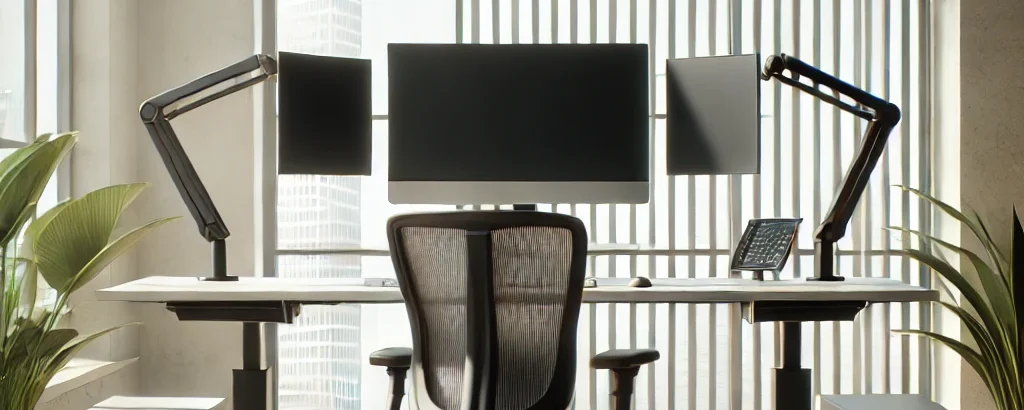The modern workplace is evolving rapidly. As technology reshapes how we work, office environments must adapt. One crucial element of this transformation is ergonomic furniture. Specifically, ergonomic desks have become a cornerstone of healthy and productive office setups.
The Rise of Ergonomics in Office Design
Ergonomics focuses on designing spaces that prioritize comfort and efficiency. In offices, this means creating workstations that reduce strain and support natural body movement. With prolonged desk use becoming the norm, ergonomic desks offer a solution to common workplace health issues.
Many studies highlight the risks of sitting for long periods. Poor posture and repetitive movements lead to back pain, neck strain, and reduced productivity. Ergonomic desks counter these risks, enabling employees to adjust their workstations to their needs.
Key Features of Ergonomic Desks
Ergonomic desks come with features designed to promote comfort. Height adjustability is one of the most significant benefits. This allows users to alternate between sitting and standing, reducing sedentary behavior.
Another feature is the desk’s ability to accommodate various accessories. Keyboard trays, monitor mounts, and cable management systems enhance the functionality of these desks. Each element works together to ensure an optimal setup.
Durability is also critical. High-quality ergonomic desks use sturdy materials to support different adjustments. This makes them a reliable investment for long-term use.
Health Benefits of Ergonomic Desks
Using an ergonomic desk improves physical health significantly. Adjustable heights prevent slouching and encourage better posture. Standing desks, in particular, help reduce the risk of cardiovascular issues linked to excessive sitting.
Mental health benefits are equally important. A comfortable workstation minimizes distractions, allowing employees to focus better. Ergonomic setups also reduce workplace fatigue, leading to higher energy levels throughout the day.
Visit ergodesks.co to explore ergonomic desk options designed for health and efficiency.
Boosting Productivity in Modern Offices
Productivity is closely tied to employee well-being. An ergonomic workspace helps workers stay organized and maintain focus. By addressing physical discomfort, companies see a direct impact on employee performance.
Studies suggest that employees using ergonomic furniture are more satisfied with their work environment. This satisfaction translates into reduced absenteeism and higher morale.
The Financial Case for Ergonomic Desks
While ergonomic desks may have a higher upfront cost, their long-term benefits outweigh the expense. Healthier employees reduce company healthcare costs over time. Additionally, a more comfortable work environment decreases employee turnover.
Businesses investing in ergonomic solutions also project a forward-thinking image. As sustainability and wellness gain prominence, ergonomic furniture aligns with these values, enhancing brand reputation.
How to Choose the Right Ergonomic Desk
Choosing the right ergonomic desk requires careful consideration. Start by assessing the workspace and the user’s needs. Measure the available area to ensure the desk fits seamlessly into the office layout.
Next, prioritize adjustability. A desk should offer a wide range of height options to suit different users. Look for desks with smooth, easy-to-use adjustment mechanisms.
Finally, evaluate the desk’s compatibility with additional ergonomic tools. Monitor arms, keyboard trays, and footrests enhance the overall setup.
Shaping the Future of Workspaces
The shift towards ergonomic workstations is more than a trend. It reflects a growing understanding of the connection between health and productivity. As companies embrace this change, ergonomic desks will play a pivotal role in shaping the future of work.
Adopting ergonomic solutions today ensures healthier, happier employees tomorrow. Businesses willing to invest in their teams’ well-being are poised to thrive in the evolving workplace landscape.
